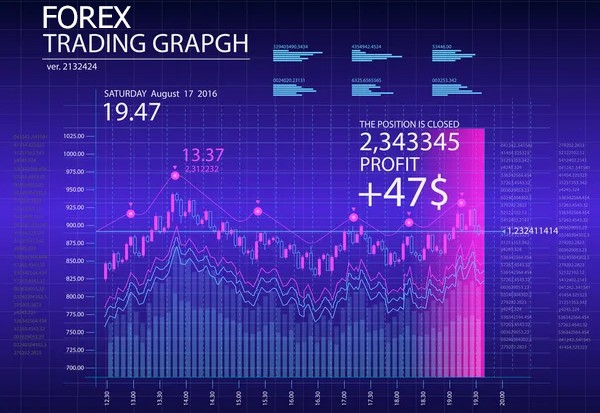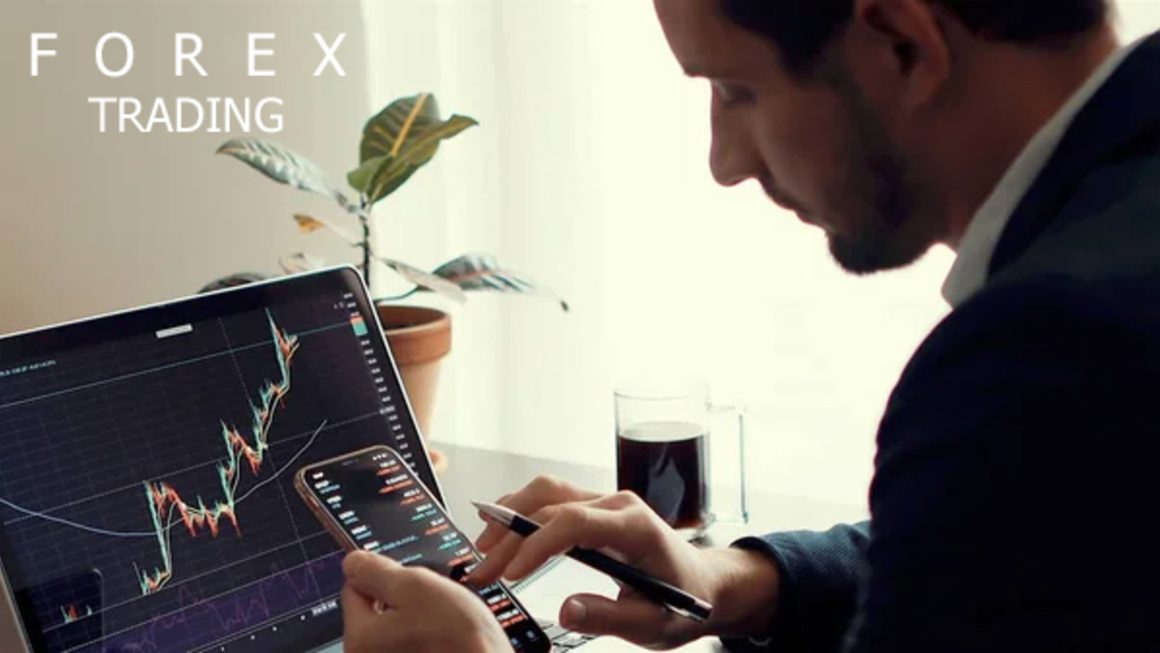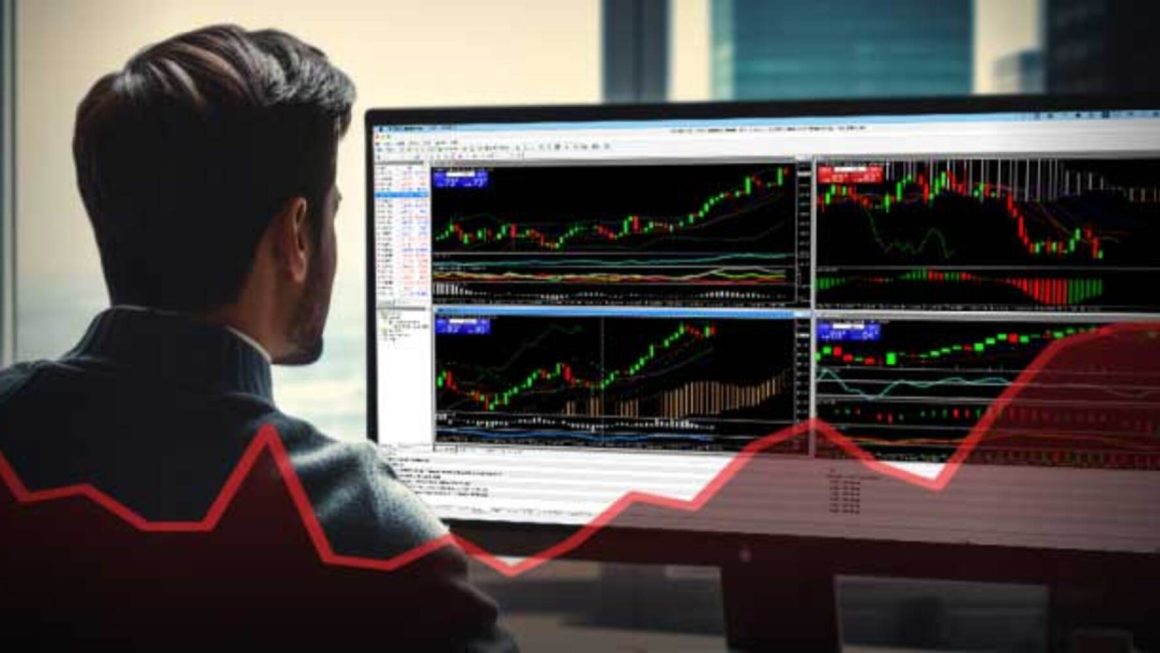Understanding Forex: An Introduction to Trading
Foreign exchange, commonly known as Forex or FX, is the global marketplace for trading national currencies. Established in the early 1970s after the Bretton Woods system collapsed, the Forex market has become the largest financial market in the world. With over $6 trillion traded daily, it’s a domain where governments, banks, businesses, and traders exchange currencies for various purposes.
Forex trading involves the buying and selling of currency pairs. Participants speculate on currency value fluctuations to profit from changes in exchange rates. For instance, if you believe the Euro will strengthen against the US Dollar, you might buy EUR/USD. If the Euro does appreciate as anticipated, you can sell the pair at a profit.
Unlike stock markets, Forex operates 24 hours a day, five days a week. It opens in Sydney, moves to Tokyo, and then London, before closing in New York. This continuous cycle is driven by the fact that currencies are in constant need, whether for trade, investments, or tourism.
The Forex market is decentralized and over-the-counter (OTC), meaning there is no centralized exchange like the New York Stock Exchange. Transactions occur via a computer network among traders globally. This structure provides the liquidity and flexibility that attracts many participants.
The participants in the Forex market include central banks, commercial banks, financial institutions, hedge funds, corporations, and individual traders. Each plays a distinct role, from maintaining national economic stability to generating profits on currency fluctuations.
Forex trading tools and platforms have evolved significantly, making it more accessible to individual traders. This democratization of Forex has led to increased participation, but also a proliferation of myths and misconceptions, including claims that Forex is akin to a pyramid scheme.
Common Misconceptions About Forex Markets
One prevalent misconception is that Forex trading is a form of gambling. While both involve risk and prediction, Forex relies on market analysis, economic indicators, and geopolitical events, unlike gambling which often depends on chance.
Another myth is that Forex markets can guarantee quick riches. While skilled traders can make profits, Forex is inherently risky and requires time, education, and experience. The potential for loss is as significant as the potential for gain.
Some people mistakenly equate Forex with multi-level marketing (MLM) schemes. The confusion often arises from dishonest brokers or fraudulent schemes using Forex terminology to mislead individuals. These entities promise unrealistic returns and often focus more on recruiting individuals than actual trading.
There’s also a misconception that Forex trading is only for professionals. In reality, anyone with an internet connection and a trading account can access Forex markets. However, success requires education and a thoughtful approach to risk management.
A common myth is that the Forex market is manipulated by large players, making it impossible for individuals to profit. While big players can influence the market, the sheer size and liquidity of Forex make it difficult for any single entity to control for extended periods.
Finally, many believe that Forex requires a large initial investment. While substantial capital can be advantageous, many brokers offer leverage options, allowing traders to control larger positions with smaller amounts of money. However, leverage can also amplify losses, emphasizing the need for careful management.
Forex vs. Pyramid Schemes: Key Differences

To dispel any confusion, it’s essential to highlight the fundamental differences between Forex trading and pyramid schemes. The table below outlines key distinctions:
| Aspect | Forex Trading | Pyramid Scheme |
|---|---|---|
| Structure | Decentralized trading market | Hierarchical and recruitment-focused |
| Profit Generation | Through currency exchange rate fluctuations | Primarily from recruiting new participants |
| Regulatory Oversight | Subject to financial regulations | Often operates illegally or unregulated |
| Risk and Return | Market-based risks and potential returns | High risk, often unsustainable returns |
| Legality | Legal with compliant brokers | Illegal in most jurisdictions |
| Marketing Focus | Trading strategies and analysis | Recruitment and joining fees |
Forex Trading is built on the legitimate exchange of currencies, where profits are derived from market movements. In contrast, pyramid schemes rely on recruiting new members, with returns dependent on the influx of new participants rather than any real economic activity.
Pyramid schemes are notorious for collapsing once recruitment slows, as there are no underlying assets or legitimate products generating income. Conversely, Forex trading continues to operate regardless of market conditions, offering opportunities for both gains and losses.
Another defining feature of pyramid schemes is their recruitment-driven approach. Participants are often promised commissions or rewards for bringing in new members, creating a hierarchy where those at the top benefit the most.
Forex trading, however, focuses on market analysis, strategies, and skillful execution. Success in Forex does not depend on recruiting others but on understanding and navigating market trends effectively.
In conclusion, while Forex trading is a legitimate financial practice with inherent risks, pyramid schemes are fraudulent operations that ultimately benefit a few at the expense of many.
Regulatory Oversight in the Forex Industry
The Forex industry is subject to regulatory oversight to protect traders and ensure fair practices. Different countries have established regulatory bodies to supervise Forex brokers and trading activities within their jurisdictions.
In the United States, the National Futures Association (NFA) and the Commodity Futures Trading Commission (CFTC) regulate Forex trading. They ensure brokers adhere to strict standards, including transparency, financial stability, and ethical practices.
The United Kingdom’s Financial Conduct Authority (FCA) plays a similar role, overseeing Forex brokers and ensuring they comply with regulations designed to protect consumers and maintain market integrity.
Other notable regulatory bodies include the Australian Securities and Investments Commission (ASIC), the European Securities and Markets Authority (ESMA), and the Financial Services Authority (FSA) in Japan. Each aims to maintain a safe and competitive trading environment.
Regulatory oversight also involves ensuring brokers segregate client funds from operational capital, preventing misuse or misappropriation of traders’ money. This practice is crucial in building trust between brokers and clients.
While regulation is vital, traders should also conduct due diligence when selecting a Forex broker. Verifying a broker’s regulatory status, reputation, and customer reviews can help ensure a secure trading experience.
Recognizing Legitimate Forex Opportunities
Identifying legitimate Forex trading opportunities requires understanding the market dynamics and conducting thorough research. Here are key factors to consider when evaluating Forex opportunities:
- Regulation: Ensure the broker is regulated by a reputable authority. Regulatory oversight is a strong indicator of a broker’s legitimacy and adherence to industry standards.
- Transparency: Legitimate brokers provide clear information about their services, including fees, spreads, and trading conditions. They should also offer comprehensive educational resources to help traders make informed decisions.
- Reputation: A broker’s reputation speaks volumes about their reliability. Check online reviews, testimonials, and any awards or recognitions they may have received within the industry.
- Customer Support: Quality customer support is essential for addressing queries and resolving issues promptly. Test the broker’s support channels to assess their responsiveness and willingness to assist clients.
- Trading Platform: Evaluate the broker’s trading platform for user-friendliness, functionality, and reliability. A good platform should provide access to real-time data, analysis tools, and seamless execution of trades.
- Educational Resources: Legitimate brokers often offer educational materials, webinars, and tutorials to help traders improve their skills and understanding of the market.
By keeping these factors in mind, traders can differentiate between genuine Forex opportunities and potential scams.
Protecting Yourself from Forex Scams
Despite the legitimate nature of Forex trading, scams exist and can be highly sophisticated. Protecting yourself from such schemes requires vigilance and awareness of common red flags:
- Unrealistic Returns: Be wary of promises of guaranteed returns or unusually high profits with minimal risk. Forex trading involves risk, and no legitimate broker can guarantee profits.
- Pressure Tactics: Scammers often use high-pressure sales tactics to rush individuals into making quick decisions. Take your time to research and verify the legitimacy of any opportunity before committing.
- Lack of Regulation: Verify the broker’s regulatory status. Unregulated brokers often operate outside of legal frameworks, increasing the risk of fraud and unethical practices.
- Complex Withdrawal Processes: Difficulty withdrawing funds can be a sign of a scam. Legitimate brokers have straightforward processes for both deposits and withdrawals.
- Poor Communication: Scammers may lack transparency and provide insufficient information about their operations. Legitimate brokers are open and communicative about their services and terms.
- Anonymous Management: Legitimate brokers have identifiable management teams with verifiable credentials. Be cautious of brokers with anonymous or untraceable leadership.
By being mindful of these warning signs and conducting thorough research, traders can safeguard themselves from falling victim to Forex scams.
FAQ: Key Questions on Forex and Pyramid Schemes
Q: Is Forex trading legal?
A: Yes, Forex trading is legal in most jurisdictions, provided it is conducted through a regulated broker adhering to local financial regulations.
Q: Can you lose money in Forex trading?
A: Yes, Forex trading carries the risk of financial loss. It’s important to educate yourself, use risk management tools, and trade within your means.
Q: How can I verify if a Forex broker is legitimate?
A: Check if the broker is regulated by a reputable financial authority. Look for reviews, regulatory information, and any warning signs of scams.
Q: What is a pyramid scheme?
A: A pyramid scheme is a fraudulent investment strategy that recruits members with the promise of payments or services for enrolling others into the scheme, rather than from legitimate investments or sales.
Q: How does leverage work in Forex trading?
A: Leverage allows traders to control larger positions with a smaller amount of capital. While it can increase potential profits, it also amplifies potential losses.
Q: Are there legitimate educational resources for Forex trading?
A: Yes, many regulated brokers and financial institutions offer comprehensive educational resources,





“The insight into how market-based risks differ from pyramid schemes is useful. Helps clarify what we’re actually getting into with Forex.”
“Education is key in any form of trading, including Forex. Thanks for emphasizing the value of learning before leaping into trades.”
Interesting read on the global impact of Forex and its operations. The fact that it operates 24/5 due to continuous need across time zones is fascinating.
Appreciate the clear differentiation between Forex trading and pyramid schemes. It’s crucial to recognize the legalities and realities of trading.
I’m glad this article points out the importance of regulation in Forex trading. It adds a layer of security for us traders.
“As someone who was curious about how leverage works, this article clarified a lot. It’s a powerful tool but definitely not without its dangers.”
The article does a great job of demystifying Forex. It’s important to understand that while there’s potential for profit, it’s not a get-rich-quick scheme.